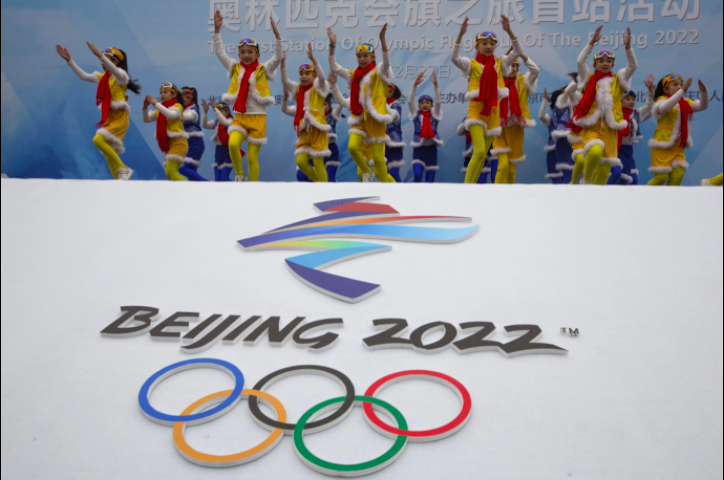The Worst of Both Worlds: Why America’s Beijing Olympic Boycott May Hurt More Then It Helps

Yeshaya Gedzelman
At the beginning of December, the US announced a diplomatic boycott of the Beijing 2022 Olympic Games. Although no government officers or diplomats will be allowed to attend in an official capacity, athletes will still be able to participate under the US flag. White House spokesperson Jen Psaki said, “the athletes on Team USA have our full support” but said US officials would not be “contributing to the fanfare of the games” explaining that to do so would be treating these games as “business as usual in the face of [China’s] egregious human rights abuses and atrocities in Xinjiang.” China’s Washington embassy responded by seeking to downplay the American move saying, “no-one would care whether these people come or not” and that the move would have “no impact” on the success of the games. The US is not the only country that is not sending diplomatic representation. 10 other countries including Canada, Australia, Japan, and the UK] have delegations staying home, although some are choosing to do so because of health concerns and others have not officially listed this move as a “boycott” (such as Japan).
The human rights issue of the Uyghur population in Chinas Xingjian province has been going on since around 2014-2015. The Uyghur population is around 12 million people that are mostly Muslim and ethnically Turkic. Reports have surfaced of frequent cases of rape and torture directed against the Uyghur population and that over a million Uyghur’s have been detained and sent to camps for slave labor, in areas that China calls “re-education camps” that are necessary for combatting Islamic fundamentalism.
Despite the fact that the Olympics started as a purely amateur competition that was supposed to remain free from politics, over the years various Olympic Games have been impacted by political issues that were shaping international politics and featured a number of boycotts. The US boycott of the 1980 Moscow games and the USSR boycott of the 1984 Los Angeles games was a symptom of the tremendous tensions between the 2 superpowers during the Cold War. The 1956 Melbourne Olympics saw Lebanon, Iraq and Egypt boycott to protest the 1956 war between Egypt, the UK, Israel and France. The 1976 games in Montreal saw 22 African nations boycott the games because the IOC refused to ban New Zealand from participating (because they toured apartheid South Africa). So boycotts can be used as a political tool and symbol to apply political pressure by delegitimizing a host nation's Olympic Games.
Even though the IOC (International Olympic Committee) has not managed to keep politics out of the Olympic Games, countries should not give up on this value lightly. Although activists and nations may seek to use the games as a means of bringing attention to a political injustice, the political tool of boycotting may lose some of its dramatic power if used too often and will likely undermine the spirit of the games which can function as a mechanism for bringing nations of different political ideologies together and hopefully increasing understanding between them. The opportunity for athletes to come together and compete against each other against the very best competitions in their sport is also diluted when boycotts are enacted.
However, unlike previous Olympic boycotts, the US boycott of the Beijing Games is diplomatic and is a less dramatic measure of previous boycotts. It seems the US has attempted to find a middle ground between attending without any punitive measure and a full boycott, which would include athletes as well and would have a far stronger adverse effect on the games given the traditional dominance of American athlete games. Perhaps the fact that the 2028 games are set to be held in Los Angeles, deterred American officials from agreeing to a full boycott (including athletes), knowing that it would probably be reciprocated. Regardless, a diplomatic boycott should be understood as American officials looking to send Beijing a warning that Washington will no longer look the other way with China’s human right abuses as it did during the Trump administration. The diplomatic boycott is meant to show that the issue of China’s human rights record is back on the list of criteria that the US will use to define Sino-American relations. However, an American boycott that stops short of one that includes holding back its athletes may end up demonstrating to the PRC (People’s Republic of China) weak American resolve, instead of the intended message, that the Biden Administration has different priorities then the Trump White House for its relationship with Beijing and that America will be ready for an increase in confrontation if its red lines are crossed. Do not be surprised if China may see the US move as spineless and hesitant and decide to give President Biden another chance to prove that America is ready to hold China accountable for human rights even if it may get messy.